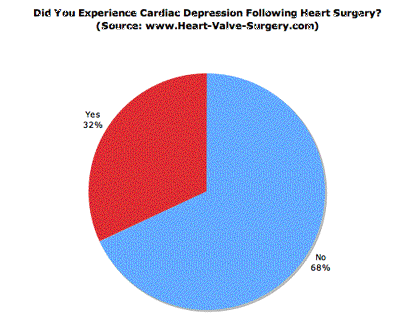debster913
Well-known member
Hi, all--
I'm sure I'm beating a dead horse here, but I'd like some insight into why some of us have suffered from depression following valve surgery.
My GP recently diagnosed me at my check-up with post-traumatic stress disorder, gave me a three-week sample of Lexapro, and scheduled a follow-up for next week. Turns out (duh to me!) that my weird mood swings, periods of restlessness and conversely, fatigue and all were depression. She says that I've been depressed since my valve surgery and never really acknowledged it. On top of all that, with my mother's illness, my emotional state has taken another hit. I recently fournd out that Mom's cancer has spread, and she has little time.
The Lexapro seems to be working well--I have more "want" to do things, I seem to be in a more positive frame of mind, and while getting together with some friends last weekend, the hubster says he hasn't heard me laugh so heartily in a long time.
But, what exactly is it about the surgery that triggers such a change?
Thanks,
Debi (debster913)
I'm sure I'm beating a dead horse here, but I'd like some insight into why some of us have suffered from depression following valve surgery.
My GP recently diagnosed me at my check-up with post-traumatic stress disorder, gave me a three-week sample of Lexapro, and scheduled a follow-up for next week. Turns out (duh to me!) that my weird mood swings, periods of restlessness and conversely, fatigue and all were depression. She says that I've been depressed since my valve surgery and never really acknowledged it. On top of all that, with my mother's illness, my emotional state has taken another hit. I recently fournd out that Mom's cancer has spread, and she has little time.
The Lexapro seems to be working well--I have more "want" to do things, I seem to be in a more positive frame of mind, and while getting together with some friends last weekend, the hubster says he hasn't heard me laugh so heartily in a long time.
But, what exactly is it about the surgery that triggers such a change?
Thanks,
Debi (debster913)
























